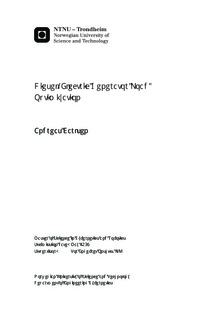Diesel-Electric Generator Load Optimization
Master thesis
Permanent lenke
http://hdl.handle.net/11250/2400580Utgivelsesdato
2014Metadata
Vis full innførselSamlinger
Sammendrag
On a ships power plant the diesel-electric generators produce the electricity. Each of the generators has its unique specific fuel oil consumption (SFOC) profile depending on the load. Up until now the generators have been run with balanced load sharing, meaning that all running generators have the same load.
In this thesis an unbalanced load sharing module has been implemented. The module takes advantage of the SFOC profiles, thus optimizing fuel efficiency. This means that each generator can have a different load depending on what is economically beneficial. Since the demand for this optimization is fairly new in the marine industry it proved difficult to find any related work. It was therefore decided to design the optimization algorithm from scratch.
The optimization module was made in Java and implemented into the Metso DNA system via an interface created by the Metso DNA engineering tools. Optimization was added as a separate mode to the power plant. However, since the optimization mode should have all of the same safety features as another mode, called sea mode, the already built in safety features of this mode was utilized. This was done by building the optimization mode as an add-on to the sea mode in the logic. However, to the user it will appear as two separate modes.
The results of the algorithm were very positive, theoretically saving up to around 200 kg of fuel per hour. Not every situation was as optimal, but the optimized unbalanced load sharing always performed better than or as well as the balanced load sharing. By testing some typical scenarios an average saving of 25,83 kg of fuel per hour (in optimization mode) was found which could mean yearly savings of up to USD 99 434.
